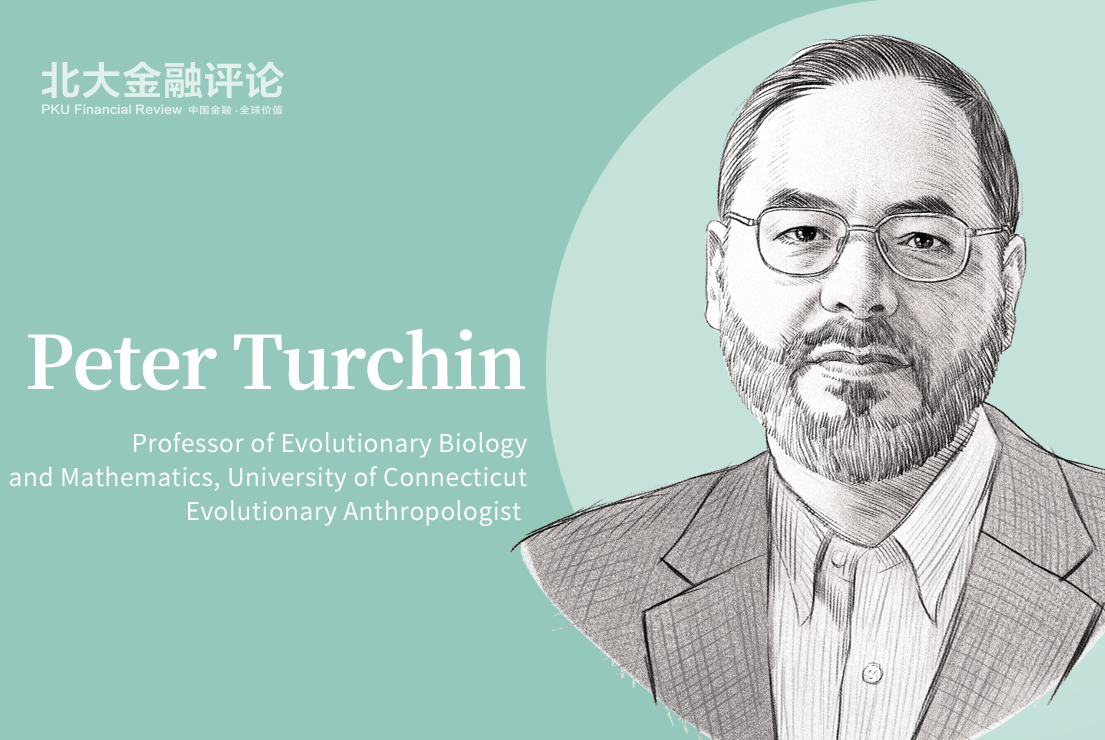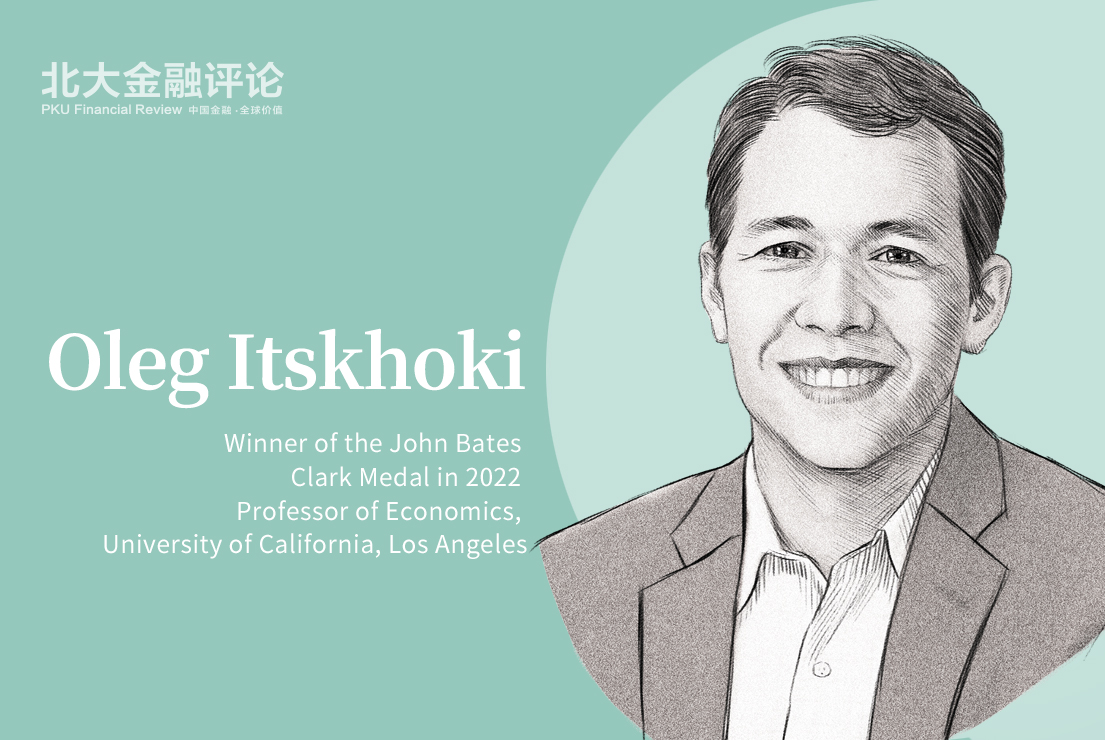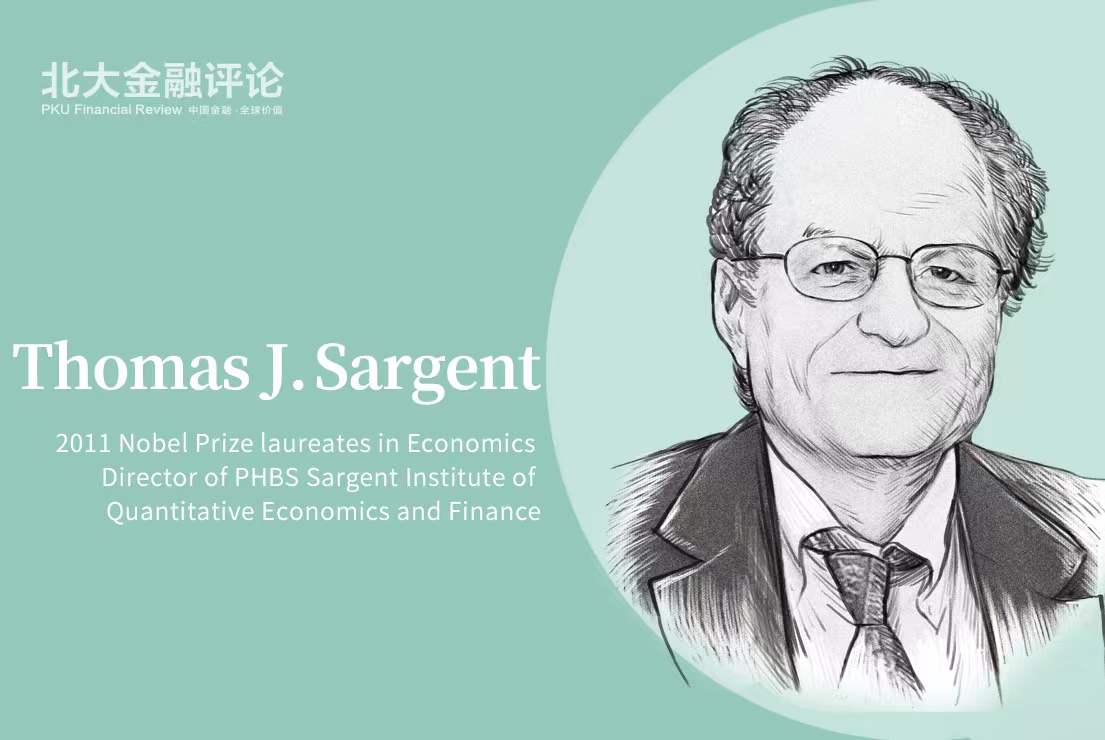Peter Turchin, professor of University of Connecticut, is widely recognized as an inspiring interdisciplinary scholar. But in China, most people except academia have no idea of him. Turchin has already published two books in China –
Ultrasociety and
Historical Dynamics: Why States Rise and Fall.
Based on historical databases, Turchin integrates macrosociology, cultural evolution, historical measurement, and structural population theory into his Cliodynamics, which investigates how and why do historical phenomena evolve with time.

In the interview between
PKU Financial Review and Peter Turchin, we discussed the reliability of Cliodynamics, and the impact of population growth on society evolution.
PKU Financial Review: What do you think of the future of Cliodynamics, which is an emerging historical discipline? Many Chinese scholars are interested in Cliodynamics. Can it become a part of policy tools or policy suggestions?
Peter Turchin: Cliodynamics has matured as a new transdisciplinary scientific discipline. We now have a solid body of theory, translated into mathematical models, and a very substantial mass of data (e.g., the Seshat Databank). There are several "success stories" showing how theoretical insights from Cliodynamics yielded new advances in our understanding of how human societies evolve and function. One example is the successful prediction of political instability for the 2020s: Turchin, Peter and Andrey Korotayev. 2020. “The 2010 Structural-Demographic Forecast for the 2010–2020 Decade: A Retrospective Assessment.” PLOS ONE. https://doi.org/10.1371/journal.pone.0237458.
Another example is a comprehensive test of hypotheses about the evolution of complex societies, which strongly supported multilevel selection theory:Turchin P, Whitehouse H, Gavrilets S, Hoyer D, François P, Bennett JS, Feeney K, Peregrine P, Feinman G, Korotayev A, Kradin N, Levine J, Reddish J, Cioni E, Wacziarg R, Mendelson-Gleason G, Benam M. 2022. Disentangling the Evolutionary Drivers of Social Complexity in Human History: a Comprehensive Test of Hypotheses. Science Advances (in press). SocArxiv Preprint: DOI 10.31235/osf.io/tekb6
PKU Financial Review: Now China is very worried about the slowdown of population growth due to aging, so China keeps relaxing the birth policy, and it seems that population growth is the driving force of the economy and society. But you and Jack Goldstone use a "Structural Demographic Theory" (SDT) to explain population growth and changes. For example, population growth will lead to elite overproduction and youth expansion. Under the premise of limited opportunities provided by the economy and society, it will increase more social dissatisfaction, causing these young people to create society unrest. From this perspective, do you think the population policy should be laissez faire?
Peter Turchin: In my view, the dangers of population decline are overblown. Reductions in the supply of labor are bad news for employers, but good news for workers as their wages grow, when demand for labor outstrips its supply. As a result, the well-being of the majority of the population increases, which is good news both for people and for the stability of the state. Increased well-being, after some time lag, usually results in growing population growth rates. Eventually, the low fertility regime self-corrects, unless the low well-being conditions are perpetuated by, for example, massive immigration of additional workers.
PKU Financial Review: The United States has seen its worst inflation in the past 40 years, the Federal Reserve’s rate hike shook the stock market, and the shooting rate in the United States is also rising rapidly. The abortion rights caused the "polarization" of the United States, some people even want to assassinate the conservative justices of the United States. At the same time, Russia's invasion of Ukraine caused the biggest crisis in Europe after World War II. What do you think of the next changes? Is not only the United States, but the world entering a period of turmoil?
Peter Turchin: Yes, I see continuing turmoil in much of the world during the next several years. In the USA the most dangerous period will be the presidential elections in 2024, because there is a high probability that the results will not be accepted by the losing party, whichever it is. The inflationary spike and economic recession in Europe will exacerbate social pressures for instability there. Probably the most vulnerable is the Global South, where food shortages and high food prices are almost certain to trigger popular uprisings.
PKU Financial Review: We have been following your blog (https://peterturchin.com/). You admire the Paleo Diet because it can not only help lose weight, but also make people more sensitive. Human beings have evolved into "the smartest animal on earth" by changing from a mainly plant-based diet to a carnivorous diet. However, at Peking University, some scholars believe that because meat and plants have been industrialized, the current agriculture is actually industrialized agriculture. Therefore, in this case, vegetarianism may be healthier. Do you agree with this view?
Peter Turchin: Industrialized foods, such as highly processed ones with artificial fats and sugars, is even worse than neolithic foods. But I don't see how this is an argument in favor of vegetarianism. You still need to get healthful proteins and fats, and the best sources for that is meat (and fish).
PKU Financial Review: From your perspective, what do you think is the most interesting part of Chinese history?
Peter Turchin: All of it, from the Neolithic to today. To me, the most interesting aspect of Chinese history is that we have good data on the long-term dynamics of complex human societies.
* This article has been initially published in PKU Financial Review.















